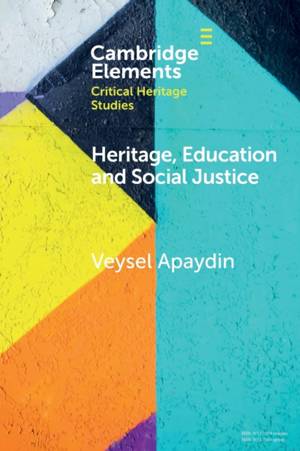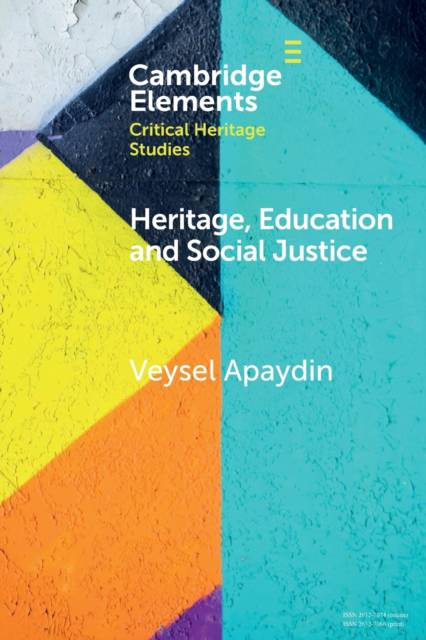
- Afhalen na 1 uur in een winkel met voorraad
- Gratis thuislevering in België vanaf € 30
- Ruim aanbod met 7 miljoen producten
- Afhalen na 1 uur in een winkel met voorraad
- Gratis thuislevering in België vanaf € 30
- Ruim aanbod met 7 miljoen producten
Zoeken
Omschrijving
This research examines how museums and heritage sites can embrace a social justice approach to tackle inequalities and how they can empower disadvantaged groups to take an equal benefit from cultural resources. This Element argues that heritage institutions can use their collections of material culture more effectively to respond to social issues, and examines how they can promote equal access to resources for all people, regardless of their backgrounds. This research examines heritage and museum practices, ranging from critical and democratic approaches to authoritarian practices to expose the pitfalls and potentials therein. By analysing case studies, examining institutions' current efforts and suggesting opportunities for further development with regard to social justice, this Element argues that heritage sites and museums have great potential to tackle social issues and to create a platform for the equal redistribution of cultural resources, the recognition of diversities and the representation of diverse voices.
Specificaties
Betrokkenen
- Auteur(s):
- Uitgeverij:
Inhoud
- Aantal bladzijden:
- 75
- Taal:
- Engels
- Reeks:
Eigenschappen
- Productcode (EAN):
- 9781009055543
- Verschijningsdatum:
- 1/12/2022
- Uitvoering:
- Paperback
- Formaat:
- Trade paperback (VS)
- Afmetingen:
- 152 mm x 229 mm
- Gewicht:
- 140 g

Alleen bij Standaard Boekhandel
+ 63 punten op je klantenkaart van Standaard Boekhandel
Beoordelingen
We publiceren alleen reviews die voldoen aan de voorwaarden voor reviews. Bekijk onze voorwaarden voor reviews.











